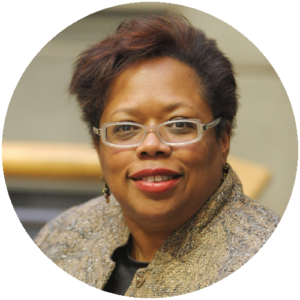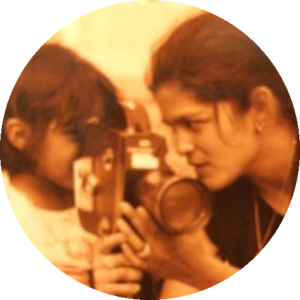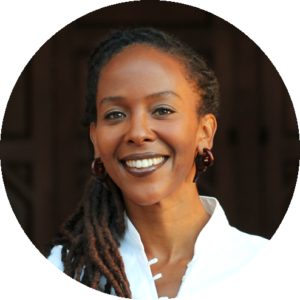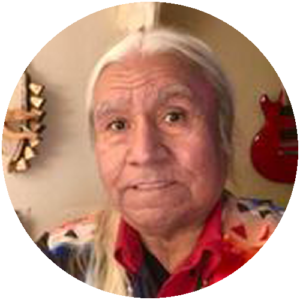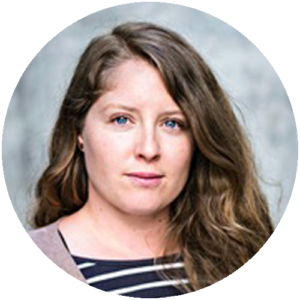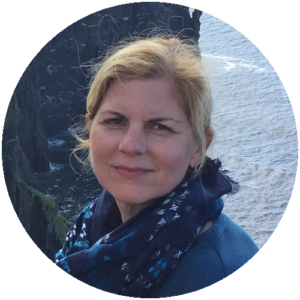October 21
9 - 10:30 am (PT) / 11 am - 12:30 pm (CT)
2021 National Gathering Welcome & Opening Plenary: Headwaters
Join us for Imagining America’s 2021 National Gathering as we kick off two days of programming on the ways we shape and are shaped by water. Our journey begins at the headwaters as we consider water’s pathways through our lives and work, how communities are mobilizing locally and nationally to reimagine and redesign our water systems, and opportunities for building a cultural front in the movement for water equity. Dr. Michael Marchand, former chairman of the Confederated Tribes of the Colville Reservation, will open this space with a water story, followed by welcoming remarks by Gathering hosts Imagining America, the Ashe Cultural Arts Center, and Tulane University, and a grounding in place by Geneva Lebeouf, member of the Pointe-au-Chien Indian Tribe. Our opening session continues with a conversation with plenary panelists Monica Lewis-Patrick, Jessa Calderon, Maritza Alvarez, and Benny Starr, members of the national Water Equity and Climate Resilience Caucus, guided by Dr. Robyn Rodriguez, Imagining America National Advisory Board member and professor and former chair of Asian American Studies at the University of California Davis. This event is free and open to the public and will be live streamed on IA’s YouTube channel.
11 am - 12:30 pm (PT) / 1 - 2:30 pm (CT)
Imagining America Member Liaison Networking and Dialogue
All current IA member liaisons and individuals from prospective member organizations are invited to bring their lunches or a snack to this virtual conversation. Connect with individuals from across the IA network as we address pressing issues of our current moment. Learn more about upcoming opportunities for members to engage with IA this fall/winter. This session will be facilitated by IA National Advisory Board Chair Kal Alston, IA Faculty Director Erica Kohl-Arenas, and IA Membership Director Trina Van Schyndel.
12:45 - 2:15 pm (PT) / 2:45 - 4:15 pm (CT)
Flow, emergence, and creating community: Exploring democratically-engaged assessment in fellowship
Imagining America’s research team Assessing Practices of Public Scholarship uses Emergent Strategy as a framework for a diverse, virtual community-of-co-inquiry focused on justice- and transformation-oriented democratically-engaged assessment. Throughout the yearlong fellows’ engagement — funded by a Bringing Theory to Practice Grant — we have been exploring the potential for radically inclusive, democratically-engaged assessment that is born of relational engagement and emergent strategy. Through monthly meetings, a community of co-inquiry has been working together to relate APPS’s framework of democratically-engaged assessment to their own justice-oriented, engagement work. Emergent strategy honors holding tensions creatively. The work of DEA discussed the importance of tension holding and strategies for not shutting down in the context of assessment. In this session, we share reflections on the year behind us, talk about how to expand our “sea of love” in waves despite a disconnected COVID year, and talk about the power of using emergent strategy to balance tension, engage in complexity, and push back on the “return to normal” while still grieving, surviving, and healing from the ongoing and devastating pandemic.
1:15 - 2:30 pm (PT) / 3:15 - 4:30 pm (CT)
Inspiring Change: Reflecting on Community Engaged Design
During the summer of 2021, a year after the advent of the Covid-19 pandemic, CoPED (Collective of Publicly Engaged Designers) sent out a survey to a range of designers, planners, and educators to gather information on transformative techniques that they had developed and changes that they had instituted during the pandemic that were worthy of being adopted on a permanent basis.
Inspiring Change is a forum with a diverse group of designers and scholar-activists (Tessa Cruz – ISEEED, Mark Gardner – Parsons, Jennifer Lewis – University of Georgia, Bz (Brenda) Zhang – Dark Matter University) with the co-directors of CoPED to continue this conversation. We begin by posing questions to the panelists that will be followed by smaller group discussions:
1. What are the take-aways from the techniques that you have used in engaging participants in planning/design projects during the pandemic?
2. What are some changes you have made in your practice personally and organizationally as a result of the pandemic? What does this reveal about design as a profession, and the role of engaged designers? We will be gathering insights from participants to build a repository of collective knowledge that we will share through the CoPED platform. Please join us whether you are a longtime design practitioner, new to the field, or simply interested in community engaged design.
3:30 - 5 pm (PT) / 5:30 - 7 pm (CT)
Thursday Evening Plenary: Channels
Our water work looks to sustaining and creating practices of solidarity and liberation in conversation with The Wind & The Warrior, a collective of liberatory healing arts practitioners. In 2020, Wind & Warrior embarked on a Sacred Waters Pilgrimage, journeying along the Mississippi River in community sacred water ceremonies, holding spaces for intercommunity conversations and cultural arts practices towards the transformation of our systems and relationships, and healing of our waters and lands. Artists, educators, and activists, the founders of Wind & Warrior are Karma Mayet, Nana Fofie Amina Bashir, Nana Korantemah Pierce Williams, and Ife Afriye Fagbulu Kilimanjaro.
October 22
8 - 9 am (PT) / 10 - 11 am (CT)
Jellyfish Joy
Jellyfish Joy is an interactive embodiment practice. Inspired by ancestral knowledge and Black feminist wisdom, this practice is an opportunity to release, reflect, & replenish through creative expression and collaborative movement. The workshop begins with a guided meditation, followed by movement to music, and will close with community reflection. Through embracing fluidity we welcome all that we are and were meant to become. We will flow, co-create, and as Bruce Lee encourages, practice being “like water”. Participants have shared that Jellyfish embodiment is a ritual, ceremony, dance, and group swim. Let’s get free, together. What you’ll want to have handy: water, a space to comfortably move around, a yoga mat (if it’s available to you), and a journal/paper and markers/crayons/pens. *Note: Limited to 24 participants. Advance registration required.*
8 - 8:45 am (PT) / 10 - 10:45 am (CT)
Imagining America “Get Together” Kickoff
Join us as we kickoff the new Imagining America (IA) Get Togethers! We will provide more information about IA Get Togethers, a new member benefit. Then we will spend the majority of the session gathered virtually to reflect and meditate on the conference theme before jumping into more active learning for the remainder of Day 2 of the National Gathering.
9:15 - 10:30 am (PT) / 11:15 am - 12:30 pm (CT)
Friday Morning Plenary: Tributaries
From ancestral connections to whale whispering, our Friday morning plenary invites an expansive consideration of the transformative power of water practices through an intimate conversation and musical experience with artist and cultural organizer Jayeesha Dutta and artist and healer Michaela Harrison. This plenary is presented in partnership with Another Gulf is Possible.
11:15 am - 12:45 pm (PT) / 1:15 - 2:45 pm (CT)
Advocacy, Assessment, Accessibility: The Affective Work of Graduate Engaged Scholarship
IA member roundtables are member-organized spaces providing opportunities for IA network collaboration and to share and exchange publicly-engaged knowledge and practices that integrate the methodologies of arts, design, and the humanities.
This roundtable session, Advocacy, Assessment, Accessibility: The Affective Work of Graduate Engaged Scholarship, features six UC Davis Mellon Public Scholars in dialogue about the emotional and social aspects of community-engaged graduate scholarship in the arts, humanities, and humanistic social sciences. From processing traumatic events, advocating for marginalized communities, to communicating the value of public work to academic audiences, engaged graduate scholars undertake a range of affective work that often goes unacknowledged. Stephanie Maroney (MPS Program Manager) and Lizbeth De La Cruz Santana (Spanish and Portuguese) center the keyword advocacy in their descriptions of engaged work with multiple audiences. Alana Hayes Stein (Sociology) and Chloe Brotherton (Linguistics) explore the limitations of assessment when evaluating and legitimizing graduate public scholarship. Brooke Kipling (Spanish and Portuguese) and Melinda Adams (Native American Studies) expand the idea of accessibility when working across communities and the university. This roundtable demonstrates how programs like MPS can create productive openings and transformative spaces for graduate students to pursue meaningful community engagement. Following presentations, all roundtable participants will undertake a reflective exercise to deepen their understanding of how accessibility, assessment, and advocacy shape their own work.
1:15 - 2:45 pm (PT) / 3:15 - 4:45 pm (CT)
Publicly Active Graduate Education (PAGE) Fellows Lightning Talks
The 2021-2022 Publicly Active Graduate Education (PAGE) Fellows will share presentations on their current and emerging work.
3:45 - 5 pm (PT) / 5:45 - 7 pm (CT)
Closing Plenary: Delta
Our water journey concludes in New Orleans, the site of IA’s 2022 National Gathering, with a screening of Junebug Productions’s Homecoming Project: Water and a conversation with Junebug Executive Artistic Director Stephanie McKee and Homecoming Project Lead Artists Frederick “Wood” Delahoussaye, Sunni Patterson, and Jeremy Guyton. Homecoming Project is a community-based, storytelling performance series that aims to marry high-quality artistic practice with a commitment to maintaining the essential relationship between art and progressive social change through engagement with New Orleans communities that have been historically oppressed and exploited. Homecoming Project: Water is a collection of stories – told in the form of dance, music, spoken word, and film – exploring the depths of our vastly different and complex relationships with water. During the pandemic, Homecoming Project Lead Artists Patterson, Delahoussaye, Guyton, Kesha McKey, free feral, and special guest Spirit McIntyre revisited Homecoming Project: Water from a distance, reimagined with stunning visuals from Melisa Cardona and Malachi Middleton artfully stitched together by Jazz Franklin. Ron Bechet, professor of art at Xavier University of Louisiana, will open this plenary event, with closing remarks provided by Kal Alston, Imagining America National Advisory Board Chair. Free and open to the public, this event will be live streamed on IA’s YouTube channel.
Sign up to get programming updates
By submitting this form, you are consenting to receive marketing emails from: . You can revoke your consent to receive emails at any time by using the SafeUnsubscribe® link, found at the bottom of every email. Emails are serviced by Constant Contact
Kal Alston
Kal Alston is professor in Cultural Foundations of Education and in Women’s and Gender Studies at Syracuse University. She is Associate Dean for Academic Programs in the School of Education and previously served as Senior Associate Provost and Senior Vice President. In all her appointments, she has been invested in helping academic units leverage all resources and create fruitful collaborations, inside and outside of the University, to broaden the academic impact on and for faculty and students. As a philosopher of education, Alston’s scholarly interests center on intersections of popular culture/media with American experiences of race, class, and gender. She is currently working on analyses of the history of civil rights in US education as it connects to other cultural institutions. Her most recent publications have focused on ethics and higher educational leadership, the phenomenal experience of race in philosophical practice, and the relevance of truth in educational practice. She is currently chair of the Imagining America National Advisory Board and the president-elect of the Philosophy of Education Society.
Maritza Alvarez
Maritza Alvarez is a queer, Xicana, Indigenous, two-legged being that was birthed in Xalisco, Mexico and raised in East Los Angeles. At 18 Maritza was trained by the Center for Third World Organizing in Oakland, California.There, Maritza was assigned with Direct Action for Rights and Equality in South Providence Rhode Island where Maritza organized a community campaign transforming abandoned and used needle infested corner lots into healthy, safe outdoor community spaces for Black and Southeast Asian children and their families. Following undergrad, Maritza worked in non-profits like Communities for a Better Environment (CBE) spearheading the successful shut down of a factory emitting hexavalent chromium. This carcinogen was damaging the health and life of working class communities living in South East L.A. It was during this time that Maritza became aware of the powerful impact media can have when utilized as a tool to help raise awareness.
Following formal training as a cinematographer and screenwriter, Maritza decided to tie the knot between social justice activism and filmmaking. Since then Maritza continues to support projects that address critical Indigenous issues throughout Abya Ayala, and the world. Documenting two convening general sessions at the United Nations on the Declaration on the Rights of Indigenous Peoples (UNDRIP) was a particularly humbling experience and honor, along with documenting the South Central L.A. urban farm struggle. Currently, Maritza organizes and supports all media projects with Sacred Places Institute for Indigenous Peoples (SPI) and organizes on issues around water. The SPI media team is in production with a Patagonia-funded documentary focused on California Indigenous tribes advocating for the protection of local water issues.
Nana Fofie Bashir
Nana Fofie Amina Bashir, MA, PCC • Facilitator, Abettor, Expressive Arts Therapist iamashemovement.org | windandwarrior.com | wisdomsladder.com
For over 25 years, Nana Fofie has brought healing to her work as a cultural organizer, educator, activist, coach and facilitator. In 2015 she started Wisdom’s Ladder to work with individuals, families, and community organizations with a focus on addressing systemic and generational trauma in marginalized communities and healing for healers. In New Orleans, Nana Fofie works with the Institute for Ashé Movement as an expressive arts therapist, while working in community as a facilitator for grassroots organizations, and community groups working to decolonize spaces and movements, create and expand accountability practices, and to create cultural arts programs. She has worked with individuals and organizations across the U.S. and in India, Canada, South Africa, and Mexico. A spiritualist and healer trained in the Akom tradition in West Africa, Nana Fofie is passionate about curiosity, radical imaginations, and the (re)integration of our indigenous knowledges into our education, community practices, and future visioning.
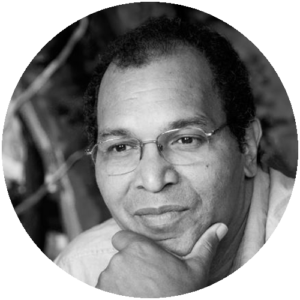
Ron Bechet
Ron Bechet is the Victor H. Labat Professor of Art in the Department of Art at Xavier University of Louisiana. He is a practicing visual and has exhibited his work nationally and internationally. He has been teaching for 20 years at the college level. He holds a B.A. degree in Fine Arts from the University of New Orleans, and an M.F.A. in Painting and Drawing from the Yale School of Art, Yale University. He has served on the Board of the Joan Mitchell Foundation and has served on other boards and commissions, such as Imagining America’s National Advisory Board. He has served as the first director of Xavier Art Department’s Community Arts Partnership Program and served in many arts and youth programs in the New Orleans area both as an advisor and a practitioner.
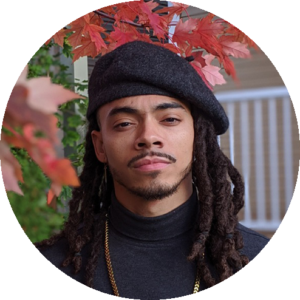
Dominic J. Bednar, Ph.D.
Dominic is a community-engaged scholar and engineer. His research examines the institutional barriers of energy poverty recognition and response in the United States and explores the spatial, racial/ethnic, and socioeconomic patterns of residential energy affordability, consumption, and efficiency. His body of work contributes to the growing energy, environmental, and climate justice fields and promotes ongoing policy analysis and program evaluations to improve community health and to effectuate a just energy transition.
Collectively, his work aims to provide clarity for structuring more effective policy interventions and improving decision making that supports assistance to energy-vulnerable households, those likely to fall into energy poverty.
He completed his Ph.D. at the University of Michigan’s School for Environment and Sustainability concentrating on Energy Justice. Dominic holds a BS in Civil Engineering from the University of Maryland and a MS in Natural Resources and Environment (Sustainable Systems) from the University of Michigan. He has been recognized as an Imagining America Publicly Active Graduate Education Fellow (PAGE), Fulbright Scholar, Ford Foundation Predoctoral Fellow, Bouchet Graduate Honor Society member, Rackham Merit Fellow, GEM Fellow, and Forbes Under 30 Scholar.
Dominic is committed to fighting climate change through the integration of academic research on residential energy injustices in a way that engenders community engagement and co-development of impactful solutions. He centers community knowledge and experiences through his teaching and research. His passion for environmental justice and community-engaged pedagogy guides his writing, teaching, and community-based learning consultancy.
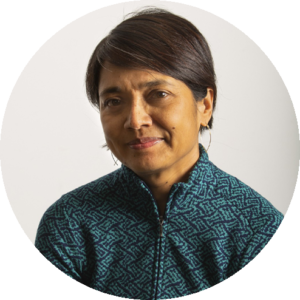
Mallika Bose
Mallika Bose is Professor of Landscape Architecture and Associate Dean of Research, Creative Activity and Graduate Studies at the College of Arts and Architecture at The Pennsylvania State University. Trained as an architect specializing in Environment-Behavior Studies she is interested in the how the built environment impacts human behavior especially for disadvantaged groups. She has been active in research in the following areas: Built Environment and Active Living/Healthy Eating; Public Scholarship and Community Engaged Design and Planning; Gender and Development; and Design/Planning Pedagogy. Her scholarship has been published in Landscape Journal, Habitat International, International Development and Planning Research, and Journal of Urban Design among others. She co-edited a book on community-engaged teaching/scholarship titled – Community Matters: Service-learning in Engaged Design and Planning – which received the 2015 Great Places Book Award from the Environmental Design Research Association (EDRA). She served as the Chair of the EDRA Board of Directors in 2012-13 and joined the National Advisory Board of Imagining America – Artists and Scholars in Public Life in 2016. She co-directs the Collective of Publicly Engaged Designers (CoPED), an initiative of Imagining America.
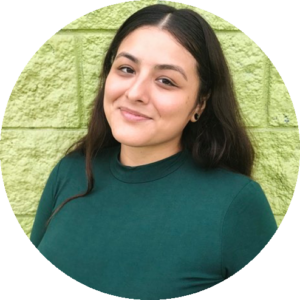
Stephany Bravo
Stephany Bravo was born in Los Angeles and raised in Compton, CA. to parents of Mexican descent. She is a third-year doctoral student at Michigan State University pursuing a dual degree in English and Chicano/Latino Studies. Her transdisciplinary research documents how BI&POC in Southern California account for their lived realities through poetry, murals, photographs, archives and other ephemera. Stephany is an inaugural MUSE Scholar, member of the GLAM-WOCollective, curator of The Hub City Photo Archive, and one of the assistant editors for Taller Electric Marronage. She has published in Kairos: A Journal of Rhetoric, Technology, and Pedagogy, Sad Girl Review, and Dryland Literary Journal.
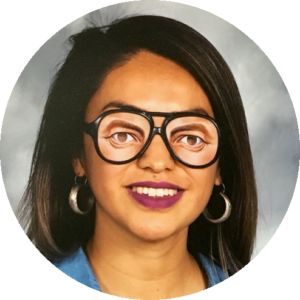
Paulina Camacho Valencia
Paulina Camacho Valencia is an artist, teacher, scholar. She is a member of the Chicago ACT Collective, a group of friends committed to building political artistic collaborations in multiple communities through art-making. After working with youth as a high school teacher for six years, Paulina enrolled as a Ph.D. student at the University of Illinois Urbana-Champaign where she is studying art education, gender, and women’s studies, and Latina/Latino studies. Paulina’s work has most recently expanded to include an online project on the digital platform Twitch under the page and username the_couch_life_of_pau where she invites listeners to tune in to hear her read books out loud. Twitch.tv/the_couch_life_of_pau
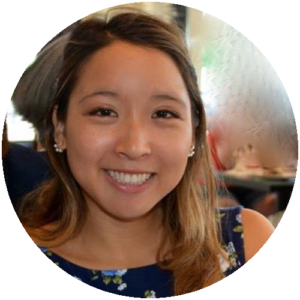
Caroline Cheung
Caroline Cheung is an English PhD Candidate with a graduate certificate in Gender, Women’s, & Sexuality Studies at the University of Iowa. She works at the intersections of women of color feminisms, theories of state violence, transformative justice and prison abolitionism. She researches the ways myths of white supremacy and proximities to whiteness uphold the prison-industrial complex. She believes that the creative and imaginative work of literature serve as revolutionary gestures, providing both experiences of and frameworks for transformative justice and community accountability. Caroline dreams and fights alongside others who know that scholarship and theory happen everywhere (and must materialize on the ground). In addition to her local activist work, Caroline has found camaraderie with other scholar activists as a NWSA Women of Color Leadership Project member, an Imagining America 2020-2021 PAGE Fellow, and Imagining America PAGE co-director for 2021-2022. No matter what the space is, Caroline’s work is consistent: to strengthen radical community and weaken the institutions that harm us all.
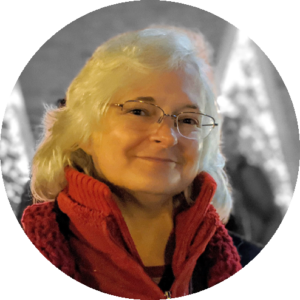
Patti H. Clayton
Patti H. Clayton was born and raised and continues to live in North Carolina – with her husband, Kevin, and their feline family. She enjoys being in the mountains, especially in southwest Virginia, and visiting National Parks, especially Zion and Denali; John Denver, Parker Palmer, and Star Trek are major influences in her life.
Patti is an independent consultant (PHC Ventures, www.curricularengagement.com) with over 20 years of experience as a practitioner-scholar and educational developer in service-learning and community engagement (SLCE) and in experiential education. She serves as a Senior Scholar with the Center for Service and Learning at IUPUI and as Practitioner-Scholar-in-Residence with NC Campus Compact. Patti has consulted with well over 100 colleges, universities, and higher education organizations in the US, Canada, and Ireland. She guides inter-disciplinary and inter-institutional scholarly collaborations, facilitates curriculum development and professional development across all partners in SLCE, and supports visioning and planning processes for community-campus engagement. She holds retreats to support graduate students, professional staff, and faculty in formulating and advancing their scholarly agendas and projects.
Patti co-developed the DEAL Model for Critical Reflection, the SOFAR partnership model, the TRES protocol for assessing partnership quality, and the DPI Model for Institutional Transformation. She was co-editor with Bringle and Hatcher of the 2-volume set Research on Service Learning: Conceptual Frameworks and Assessment and co-authored the Democratic Engagement White Paper with Saltmarsh and Hartley (https://repository.upenn.edu/cgi/viewcontent.cgi?article=1252&context=gse_pubs) and the Democratically Engaged Assessment White Paper with Imagining America’s Assessing Practices of Public Scholarship team (https://imaginingamerica.org/wp-content/uploads/DEA-WhitePaper_FINAL.pdf).
Patti’s interests include operationalizing democratic engagement and transformational partnerships; designing SLCE for civic learning; conceptualizing place-engaged SLCE; integrating SLCE and relationships within the more-than-human world; and exploring the power of such “little words” as in, for, with, and of to shape identities and ways of being with one another in SLCE.
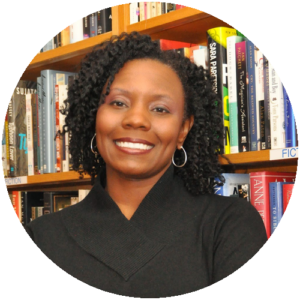
LaShawnda Crowe Storm
LaShawnda Crowe Storm is an artist, community organizer and occasionally an urban farmer. Whether she is making artwork or sowing seeds, Crowe Storm uses her creative power as a vehicle to transform our community around topics such as racial and gender violence, social justice and community change. At the core of her practice is a desire to create community; any community in which the process of making art creates a space for difficult discussions with an eye towards community healing. Crowe Storm received an M.F.A. from The School of the Art Institute of Chicago. She is also the Community Engagement Director for Spirit & Place, where the use of the arts, humanities and religion are the tools for community transformation and difficult community dialogues. She is the is founder and program manager of Spirit & Place’s signature dialogues series Powerful Conversations on Race.

Tessa Cruz
Tessa Cruz is the Program Manager for Equitable Engagement and Community Engaged Design at ISEEED. She is also the Director of Outreach and Engagement for Streetwyze and has over seven years of experience developing and implementing community facing geospatial tech platforms, using the power of local knowledge to help underrepresented and vulnerable populations find resources and take action on important issues in their communities. Cruz works directly with communities on the ground to support managing projects, leading trainings, identifying baseline conditions for research, and helping measure the impacts of community based data collection and geospatial technology interventions. Prior to joining ISEEED and Streetwyze she served as the Public Programming and Public Policy Intern at SPUR. She has a B.A. in Environmental Studies from Oberlin College with a concentration in Sustainable Development and Environmental Justice.
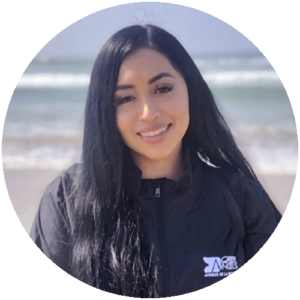
Lizbeth De La Cruz Santana
Lizbeth De La Cruz Santana is a PhD candidate in Latin American Literatures and Cultures with a designated emphasis on Human Rights at the University of California, Davis. Her area of research focuses on digital storytelling, testimonial literature, and 20th and 21st Century Mexican, Mexican-American Literature and Culture. Her first book manuscript centers on United States childhood arrivals and intends to draw attention to a range of ethical-oriented concerns regarding the legal treatment of this group. In her contribution, she coins the Childhood Arrivals Critical Theory (CACrit) framework, the Childhood Arrivals Diaspora, and introduces a more general definition of this group.
Her public scholarship includes the Playas de Tijuana Mural Project, a digital mural in the Mexican side of the westernmost point of the US-Mexico border that documents the stories and portraits of (deported) US childhood arrivals. She is a researcher for the Humanizing Deportation project, a community based digital storytelling project that documents the human consequences of mass deportation.
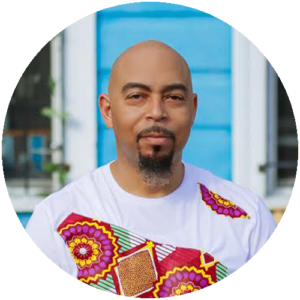
Frederick “Wood” Delahoussaye
Educator, entertainer, emcee, and New Orleans native Frederick “Wood” Delahoussaye has propelled through the elements of artistry, entertainment, organizing, and advocacy for over two decades. Wood is a poet, producer, performer, director, emcee, arts administrator, community leader, and activist whose purpose and passion is the liberation of Black people across the globe. He is Chief Creative Officer for the Ashé Cultural Arts Center as well as Lead Artist for Junebug Productions’ Homecoming Project. He currently serves on the National Advisory Board of Imagining America, is a John O’Neal Cultural Arts Fellow, and a Tulane Mellon Graduate Program in Community-Engaged Scholarship Community Leader. He is a featured performer in KM Dance Project’s Distorted Images and Taken, Junebug Productions’ Homecoming Project, and Ashé Cultural Arts Center’s Big Easy Award-winning the Origin of Life on Earth. He is the recipient of the Asante Foundation’s Cultural Ambassador Award for Performance Art, National Performance Network’s Mentorship and Leadership Award, and the Archdiocese of New Orleans’ Servant Leader Award, to name a few.
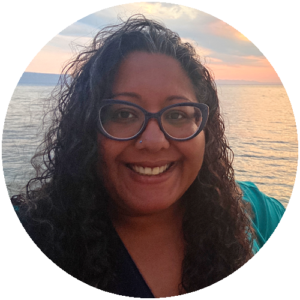
Jayeesha Dutta
Jayeesha Dutta is an artist, cultural organizer and daughter of Bengali immigrants from a place that was a colony of Britain when her father was born, was known as East Pakistan when her mother was born, and Bangladesh when she was born in Mobile, Alabama in the late 1970’s. Mainly raised in Queens and Manhattan in the 80’s and 90’s, Jayeesha considers herself a Hip Hop Gen Xer. After spending nearly 10 years in Oakland, she began calling Balbancha, now known as New Orleans, home, 11 years ago. She is a co-founding member of Another Gulf Is Possible Collaborative and consults on healing justice programming and facilitation with the Windcall Institute. She also serves on the boards for Alternate ROOTS, Climate Justice Alliance, Eyewitness Palestine & South Asian Americans Leading Together (SAALT).
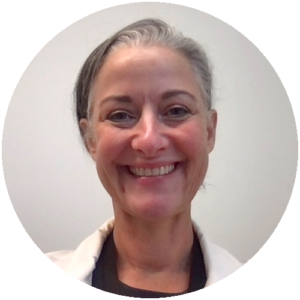
Steph Etheridge Woodson
Stephani Etheridge Woodson is a professor in the School of Music, Dance and Theatre at ASU where she specializes in community cultural development and community-engaged practices. She serves as director of the Herberger Institute’s Design and Arts Corps, an initiative to partner all Herberger Institute students with the community. Her research and creative interests focus on theatre and performance with, by and for children and youth; representational ethics; arts in wellness practices; and the group creation and performance of original work. Currently serving as associate dean for students in the Herberger Institute, she is a founding member of CENAS (Cultural Engagements in Nutrition, Arts and Sciences), a transdisciplinary working group of scholars and artists who develop, implement and evaluate innovative approaches to community and individual wellness, with arts practices at its center.
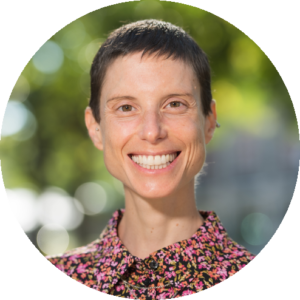
Marisol Fila
Marisol Fila is a PhD Candidate in Romance Languages and Literatures Spanish and Portuguese. Her dissertation explores how Black female and male writers, artists and intellectuals in the twenty-first century Black presses of Buenos Aires, Argentina, São Paulo, Brazil, and Lisbon, Portugal use digital and print media to navigate distinct articulations between diasporic and national Black identities. Marisol’s dissertation is designed around a multimodal and multilingual inquiry, discovery, and analysis across traditional text-based analytical exposition and digital storytelling. This mixed method of delivery explores how multimodality and technology can change the experience of informing research in a dissertation and invites the reader to interact actively with the project via a socially-engaged and transmedia approach. Marisol is also interested in Critical Pedagogy and Public Digital Humanities and is currently developing projects in partnership with Afro-descendant organizations across Portuguese and Spanish speaking countries. Marisol is the 2021-2022 A. Bartlett Giamatti Graduate Fellow for the University of Michigan Institute for the Humanities.
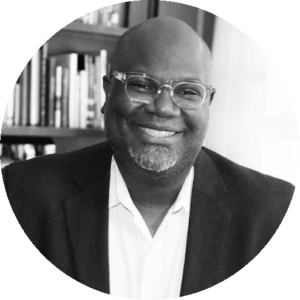
Mark Gardner
Mark Gardner is a principal at NYC-based Jaklitsch/Gardner Architects (J/GA), an award-winning design practice and studio that works across scales from product design to interiors to buildings. Mark has led many of J/GA’s design initiatives, and works to best understand the role of design as a social practice. The firm has won an AIA National Honor Award and numerous AIANY design awards. The practice recently worked with a non-profit partner on a Honey Bee Study Center in Dodoma, Tanzania. Mark is currently an Assistant Professor of Architectural Practice & Society. He had been teaching part-time at Parsons, specifically courses in Construction Technology and Professional Practice in SCE. He previously taught Professional Practice at PennDesign (2007-2012). He serves on the Advisory Board of MathMinds, 21st Century Schools Partnership, an afterschool program created to expose high school students of color to college coursework in engineering, computer science, and tech entrepreneurship. Mark is also Advocacy Chair for nycobaNOMA, the New York chapter of the National Organization of Minority Architects; and past co-chair of the AIANY Diversity & Inclusion Committee. He is co-chair of the Van Alen Institute Program Leadership Council and a Member of the Board of Trustees, and a Fellow of the Urban Design Forum. Mark also serves on the Board of Overseers at University of Pennsylvania, School of Design. He has a M.Arch from University of Pennsylvania and a Bachelor of Science in Architecture from Georgia Institute of Technology.
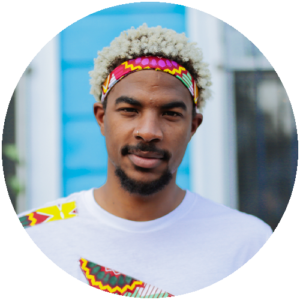
Jeremy Guyton
Jeremy is a performer, choreographer, educator, alchemist, dreamer, and new world conjurer. Born and raised in Los Angeles, the vibrations of the city tickled flesh and sinew and set the foundation for his movement vocabulary. Upon graduation from high school, his curiosity led him to the Mid-Atlantic, where he graduated from Georgetown University with a BA in Theater and Performance Studies. Upon graduation, he moved to New Orleans, Louisiana and began working in education, teaching kindergarten at Success Preparatory Academy and soon served as Youth Programs Director at Dancing Grounds. In this role, he co-organized the second Dance for Social Change Festival in which the focus pivoted to youth dance and performance. He is currently obtaining his MFA in choreography and performance from Florida State University.
Along with being a core artist with Junebug Productions, he is also a company member of KM Dance Project and Goat in the Road Productions and a member of the inaugural re:frame cohort. As a choreographer and dancer, credits include: Solange Knowles, Maya Taylor, Aluna, Chris Emile, Edward Sharpe & the Magnetic Zeros, Kristin Sudeikis, Jawole Willa Jo Zollar, Kesha McKey, Leyla McCallah and Kiyoko McCrae, and B.U.K.U. Dance Krewe. and Goat in the Road Productions.
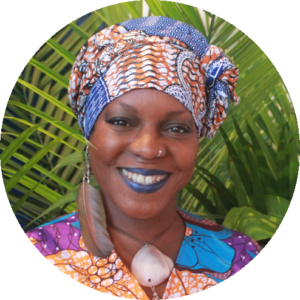
Michaela Harrison
Michaela Harrison is an international vocalist and healer whose career is rooted in relaying the elevating, transformational power of music through song and supporting others in accessing the fountain of healing energy available in nature through ritual and creative practices. Holding a Bachelor’s degree in International Affairs and a Master’s in Africana Studies, she is fluent in French and Portuguese, familiar with Spanish and Swahili, and has an expanded repertoire of world music, rendering songs in their original languages. After nearly two decades of calling New Orleans home, Michaela has returned to her native Washington, DC, yet continues to spend extensive time in Brazil, where has headlined music festivals and performs at various venues and events. She has toured in Jamaica, Japan, France, Germany, Italy, England, Switzerland, the Netherlands, and has recorded with members of Sweet Honey and the Rock, Bill Summers, Kermit Ruffins, and Mother Tongue. Michaela has facilitated and participated in numerous workshops and retreats and is currently engaged in a project called Whale Whispering, a musical collaboration on water, healing and ancestry with humpback whales based in Bahia.
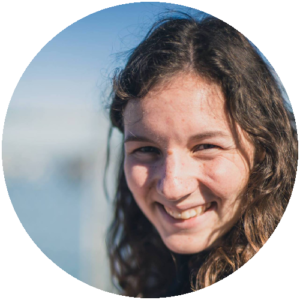
Alana Haynes Stein
Alana is a Ph.D. Candidate in the Department of Sociology at the University of California, Davis. Her research uses an intersectional, feminist approach to study inequalities in the food system. She engages in public scholarship, as she researches stratification, the environment, political economy, food studies, and organizations. In her research, she pulls on the methods of ethnography, in-depth interviews, geospatial analysis, content analysis, and network analysis.
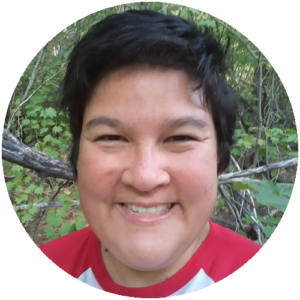
Amy Hirayama (she/her)
Amy Hirayama is a Hapa writer and educator in Shoreline, Washington. She is interested in writing as a tool for social justice and self care. Her writing explores identity through imagined histories and world building. The beauty of the Pacific Northwest, humor and food are vital parts of her practice.
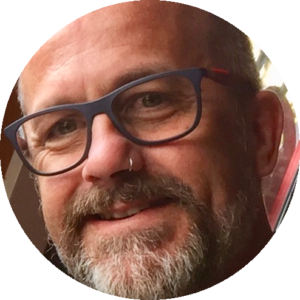
Glyn Hughes
I am an applied sociologist and community organizer working as an administrator in higher education. At the University of Richmond my work is informed by a justice-centered approach to institutional and social change. I regularly consult and scheme beyond UR on topics ranging from strategic planning and institutional self-inquiry, to equitable hiring practices and the use of community organizing in institutional settings. Other areas of interest and specialization include anti-racism, emergent strategy, gender, and vision-oriented assessment.
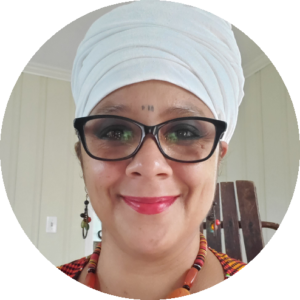
Afriye Kilimanjaro
My experiences as a grandmother, director, author, connector, researcher, administrator, teacher, activist and traditional healer both inform and are informed by my deep commitment to justice and a better world. Underlying my personal and professional accomplishments have been a deep understanding that as we fight for and bring into being a better world for all, it is important to simultaneously make our inner worlds (i.e., mind-body-spirit) and relationships healthy and whole. www.medewnefer.com
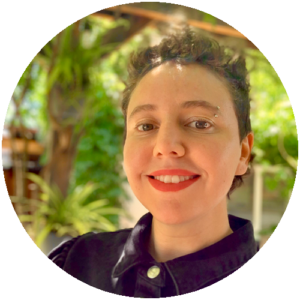
Brooke Kipling
Brooke Kipling (she/they) is a Ph.D. candidate in the Spanish & Portuguese department at UC Davis. A member of the project Humanizing Deportation and a 2021 Mellon Public Scholar, Brooke’s research is informed by her experiences on the ground, whether in Chiapas or Tijuana, where theory is generated from migrants themselves. Working with the digital narratives of migrants, Brooke researches the ways in which Central American migrants speak themselves into being outside of liberal humanist narrative frameworks.
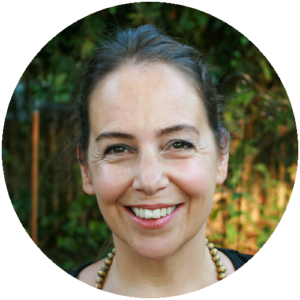
Erica Kohl-Arenas
Erica Kohl-Arenas is an Associate Professor in American Studies at the University of California, Davis and the Faculty Director of Imagining America: Artists and Scholars in Public Life. She is a scholar of social movements, freedom struggles, and the politics of institutionalization, professionalization, and private philanthropy. Kohl-Arenas’ research has focused primarily on the radical imaginations and deferred dreams of social movements that become entangled with the politics of institutionalization and funding. This work is captured in her book The Self-Help Myth: How Philanthropy Fails to Alleviate Poverty(University of California Press, 2016) and in a diversity of publications including Antipode: A Radical Journal of Geography, Social Movement Studies, Journal of Poverty, Geography Compass, Public: A Journal of Imagining America, chapters in books with international scholars of philanthropy and poverty studies, and public scholarship platforms including HistPhil and Transformation (at Open Democracy).
Based on an early mentoring relationship with the late Myles Horton of the Highlander Center in Tennessee, all of Kohl-Arenas’ work is inspired by the principles of movement building, popular education and liberatory pedagogy. As an organizer, popular educator and researcher, she has worked with farmworker and immigrant organizations in California’s Central Valley, in the coal-mining towns of Appalachia, in California urban public schools, and, internationally, in southern Africa, Scotland and Wales. Over the past decade Kohl-Arenas organized a number of action research partnerships with cultural institutions, humanities initiatives, and nonprofit organizations, and currently directs the diverse public scholarship platforms of Imagining America. Kohl-Arenas was the inaugural recipient of The New School’s Achievements in Social Justice Teaching Award (2014), and received The New School Distinguished University Teaching Award (2016) as faculty at The New School in New York City, where she was awarded tenure in May 2017. She now teaches courses on California social movements and public scholarship at UC Davis.
Kohl-Arenas currently serves as a Co-PI on two major research initiatives: the IA Leading and Learning Initiative about the politics of institutional change in higher education in support of public and activist scholarship, and a collaborative research project about the reclamation of land, agriculture, and community memory in building self-determined futures in rural Black Mississippi, in partnership with Mina Matlon, and Carlton Turner of the Mississippi Center for Cultural Production (Sipp Culture). She is also working on a book project about intergenerational freedom fighters from the 1960s and now. Kohl-Arenas received a BA in Sociology from Reed College, a Masters of Science in Community Development from UC Davis, and a PhD in Social and Cultural Studies in Education from UC Berkeley.
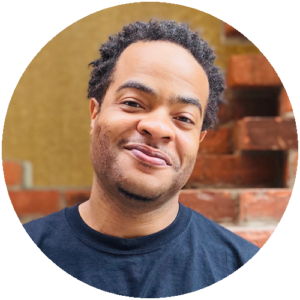
Will Langford
Will “The Poet” Langford is a community-engaged teaching artist who hails from Detroit, Michigan, and the 2017 Motown Mic Spoken Word Artist of the Year.
Langford is a doctoral student in the College of Education at Michigan State University. Will’s scholarship focuses on arts-based community engagement. In 2021, Langford’s work to engage students in socially-distanced art-education opportunities earned the Graduate Student Award for Community Engagement from University Outreach & Engagement (MSU).
Langford is a visual artist as well! His “Eat Up Detroit!” Gallery Exhibition & Community Art Workshop launched recently in Hamtramck, Michigan at Granny’s Chandelier Art Gallery. During the 2021-2022 PAGE Fellowship year, Langford plans to tour and expand his exhibition to reach students and community members in East Lansing, Michigan. For more, visit: www.WillThePoet.com
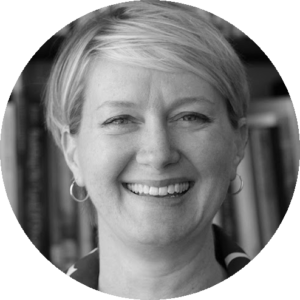
Jennifer Lewis
Jennifer Lewis is the Director of the Center for Community Design and Preservation – the public service and outreach arm of the University of Georgia’s College of Environment and Design (CED). She develops and promotes community engagement, service-learning, and collaborative partnerships for the benefit of students, faculty, and Georgians. With disciplines in landscape architecture, historic preservation, and urban planning and design, CED averages about 60 outreach projects annually for historic buildings and downtowns, corridors and rural areas, ecological restoration sites, neighborhoods, schools, and parks across the state. Jennifer also manages the college’s design charrette program – a service-learning opportunity for students that provides a collaborative visioning workshop for Georgia communities, now entering its 24th year.
Jennifer holds a B.A. in Art History/Studio Art from the College of Charleston and a Master of Historic Preservation from the University of Georgia, having completed her thesis on the reuse of historic school buildings as schools. Her expertise lies in historic preservation commission activities and design review programs in historic districts, downtown revitalization programs, and community design charrettes – all tools that assist communities in protecting what is significant from their past and managing future growth.
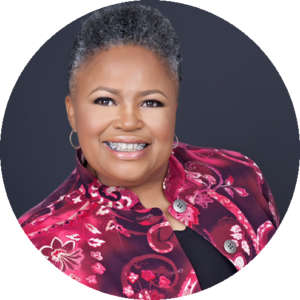
Monica Lewis-Patrick
Monica Lewis-Patrick is an educator, entrepreneur, and human rights activist/advocate. Along with the other four founders of We the People of Detroit (WPD), she, with the leadership of volunteers and community experts, placed herself and WPD at the forefront of the water justice struggle in Michigan, across the country and globally. Lewis-Patrick is known throughout the environmental justice community as The Water Warrior. She is actively engaged in the struggle for access to safe, affordable water for all under-resourced communities.
She currently serves as a member of several organizations, boards, and committees dedicated to the advancement of water equity, including the National Water Affordability Table, All About Water/Freshwater Future – Subcommittee, PolicyLink- Water Energy Resource Caucus (WERC), Michigan Water Unity Table, End Water Poverty, and Healing Our Waters/Equity Advocacy and Action Committee. In October of 2015, she was named to the World Water Justice Council. In 2019 she was appointed to the International Joint Commission (IJC) Great Lakes Water Quality Advisory Board, and she received an appointment to the Michigan Advisory Council on Environmental Justice by Gov. Whitmer.
As a former Lead Legislative Policy Analyst for Detroit City Council, Monica has authored legislation, conducted research, and delivered constituency services to thousands of city residents. Lewis-Patrick attended the historic Bennett College. She is a graduate of East Tennessee State University with a Bachelor’s degree in Social Work and Sociology and a Masters of Arts of Liberal Studies degree with a concentration in Criminal Justice/Sociology and Public Management. She has also received the honor of being selected as a Michigan State University Water Fellow and Ron McNair Scholar.
Dr. Michael E Marchand ( Colville )
Author of two books: The Medicine Wheel: Environmental Decision-making Process of Indigenous Peoples and The River of Life: Sustainable Practices of Native Americans and Indigenous Peoples.
Active in Native American Policy as a tribal leader for several decades. Served as an officer in tribal organizations such as Affiliated Tribes of NW Indians and the National Congress of American Indians and for the Council of Energy Resource Tribes (CERT). CERT was formed to empower tribes to manage their own resources which formerly was dominated by private industry.
Experience as a Project Supervisor for a large multinational mining corporation, responsible for Environmental Impact analysis, mine planning, mine reclamation. Served as the Colville 208 Water Quality Planner. Served as Colville Planning Director for regulatory development and economic development.
Currently serve as the Economic Development Committee Chairman for the Affiliated Tribes of NW Indians.
Obtained a PHD in Environment and Forestry at the University of Washington. Masters in Urban and Regional Planning at Eastern Washington University. BA in Economics at Eastern Washington University.
Stephanie Maroney
Stephanie Maroney Ph.D. is the Program Manager for the Mellon Public Scholars Program at the UC Davis Humanities Institute. In this role, she promotes the transformative power of the arts and humanities and help shape the future of graduate humanistic research to be collaborative, impactful, and engaged with communities beyond the university.
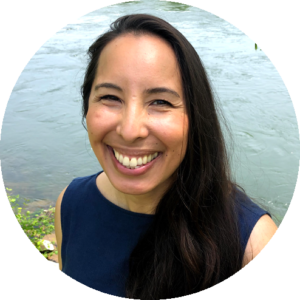
Charlene Martinez
Charlene Martinez transgresses normative boundaries as a cultural weaver. She is Taiwanese-Colombian American, csi-woman of color, mother of three, child of immigrants and resides on Kalapuyan territory (known as Corvallis, Oregon). Charlene’s work sits at the intersection of narrative change, healing, and capacity building toward liberatory futures. She is a critical mixed race educator, equity strategist, and capacity builder who guides individuals, leaders, and organizations toward bold change and greater purpose. Her publications lift up storytelling, relational leadership, cultural organizing, and healing methodologies. She finds joy in water medicine, laughter, and cultural somatics.
Charlene holds a M.Ed. with an emphasis in Multicultural Counseling from the Community-Based Block Program at San Diego State University and a B.A. in Global Studies from UC Santa Barbara. Her professional experiences include work in cross/multi-cultural centers, and experiential learning programs at Oregon State University, Sacramento State, Mills College, Contra Costa College, UC San Diego, and as well as a non-profit, the Rockwood Leadership Program. Her service includes: the BIPOC Anti-Racist Arts Administrators Coalition, the Teachers Advisory Council for the Portland Art Museum, and the U.S. Department of Arts and Culture.
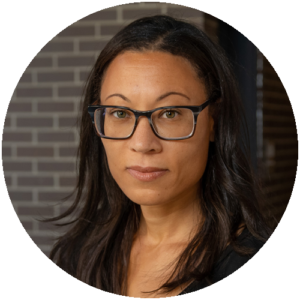
Mina Para Matlon
Mina Para Matlon is an arts organizer, researcher, attorney, artist, and cultural equity advocate. Inspired by the spatial and temporal bridge building work of traditional knowledge bearers, Matlon’s research interests lie in the intersecting areas between arts and community development, with her practice particularly focused on supporting local and Indigenous communities who seek to protect and leverage their cultural assets. Since 2017, she has served as the managing director of Imagining America: Artists and Scholars in Public Life (IA), a national consortium of scholars, artists, designers, humanists, and organizers who imagine, study and enact a more just and liberatory ‘America’ and world. Prior to joining IA, she served as the director of research for Dance/USA and was the co-founder of the Canadian-U.S. advocacy collective Plural, in which capacity she served as principal co-investigator and lead author of Figuring the Plural, a landmark study examining the characteristics, needs, and support structures of Canadian and U.S. ethnocultural arts organizations. Her previous work has spanned both the for-profit and nonprofit sectors, including positions within higher education, corporate law, domestic and international legal aid and policy organizations, and small to large arts, media, and cultural institutions.
Matlon has trained in dance, theater, photography, and the fiber arts and holds degrees from Dartmouth College, Harvard Law School, and the School of the Art Institute of Chicago. She has been appointed to the boards and advisory committees of arts organizations based in New York, Illinois, Oregon, and California and has served as a grant panelist for the National Endowment for the Arts. Matlon currently serves on the board of directors for California Humanities, the advisory board of Pepatian, a South Bronx-based multidisciplinary arts organization, the leadership team of the UC Davis African American Faculty and Staff Association, and the editorial board of the American Journal for Arts Management. She is a Robert Wood Johnson Interdisciplinary Research Leaders Fellow.
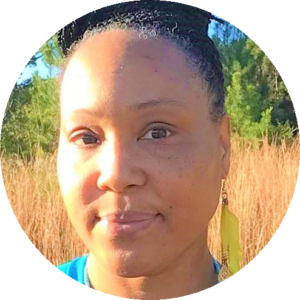
Karma Mayet
Karma Mayet is based on Lenape land in Brooklyn, New York and originally from Chicago, of Mississippi heritage. For the last 25 years, she has offered healing modalities grounded in Sacred Rootwork. As yoga practitioner and creator of the Rootsong™ practice, she shares the process of somatic improvisation to facilitate personal and communal healing and transformation. She is composer/librettist of Indigo, a Blues opera. Karma is currently a member of the cast of Octavia E. Butler’s Parable of the Sower, the opera. Her newest play, Race Card, was deemed ‘powerful, political theater’ by the New York Times. As a poet, composer, performer, and teacher, Karma brings the same reverence for the Mystery to each modality. She is a Founding Member of healing arts collaborative The Wind & The Warrior.
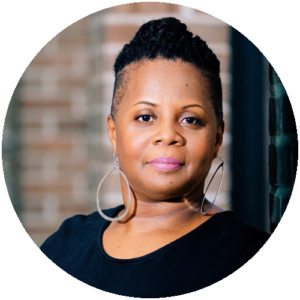
Stephanie McKee
Stephanie McKee-Anderson is a performer, choreographer, educator, facilitator and cultural organizer born in Picayune, MS and raised in New Orleans.
She is the founder of Moving Stories Dance Project, an organization committed to dance education that provides opportunities for dancers and choreographers to showcase their talents. In 2007, she was awarded The Academy of Educational Development/New Voices Fellowship, an award for emerging leaders.
For the past 20 years, Stephanie has been involved with Junebug Productions as an artist and educator. Most recently she served as Associate Artistic Director of the first annual Homecoming Project 2011, a place-based performance project that addresses the Right of Return and what home means to communities in post-Katrina New Orleans. In 2006, Stephanie was one of ten artists who collaborated to create the original production, “UPROOTED: The Katrina Project,” co-produced by Junebug Productions.
As an artist and cultural organizer, Stephanie is deeply committed to creating work that supports social justice and aligns with the FST and Junebug legacy.
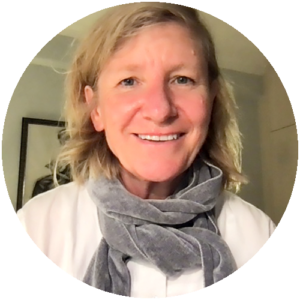
Janice McMillan
Dr Janice McMillan is an Associate Professor based in the Centre for Innovation in Learning and Teaching (CILT) in the Centre for Higher Education Development (CHED) at the University of Cape Town. She was co-founder of the UCT Global Citizenship: Leading for Social Justice programme. (GCP) from 2010-2019, a programme linked to UCT’s then strategic plan. From 1999-2001, Janice was the UCT academic partner on the national service learning CHESP programme; and from 2010-2014, she was also the service-learning coordinator for Stanford University’s Bing overseas study programme in Cape Town. Within UCT she is a member of several university and faculty committees including the University Social Responsiveness Committee (USRC), a committee that reports directly to Senate. Janice was also on the Board of SHAWCO, a large student volunteer organization from 2006-2015. Since mid 2017, Janice has also had an institutional role on engaged scholarship and social responsiveness reporting directly to the Deputy Vice Chancellor Transformation & Social Responsiveness.
Janice completed her PhD in Sociology at UCT in 2008, focusing on service learning as a form of boundary work in higher education. Janice has received several awards for both her research and teaching. In 2008, she received an honourable mention for her PhD thesis from the International Association of Research on Service Learning and Community Engagement (IARSLCE). In 2016, she was the recipient of 2 teaching awards at the university: The Collaborative Educational Practice; and a Distinguished Teacher Award, the highest teaching award at UCT.
Also in 2016, Janice she was one of 10 scholars in Africa who received a University Education for Transformative Education in Africa (UETLA) grant of $10,000 from a partnership between Master Card and the Talloires Network – see https://talloiresnetwork.tufts.edu/blog/news/2017/05/01/university-education-for-transformative-leadership-in-africa/. Janice’s teaching, research and development interests centre on faculty and institutional development with particular emphasis on community-engaged learning; and university-community partnerships more broadly.
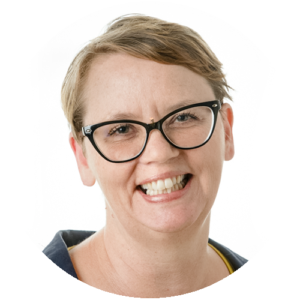
JuliA Metzker
JuliA Metzker serves as the director of the Washington Center for Improving Undergraduate Education at The Evergreen State College. JuliA holds an undergraduate degree from Evergreen, where she learned firsthand the value of a transformative liberal arts education. She completed her doctoral work inorganic chemistry at the University of Arizona. After 10 years as a chemistry professor, she served as the first director of community-based engaged Learning at Georgia college. JuliA believes in reimagining and reclaiming the democratic potential of assessment, work she champions as a member of the Imagining America’s “Assessing the Practices of Public scholarship” research group. Recently she co-authored, Learning That Matters: A Field Guide to Course Design for Transformative Education, that takes a fresh approach to designing learning experiences for the 21st century. She and her partner, Joe, raise chickens and bees with the help of an unruly Australian shepherd in the Pacific northwest.
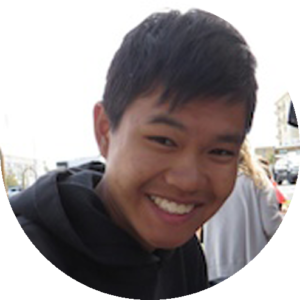
Peter Nguyen
Peter is currently a fifth-year Geography Ph.D. candidate at UC Davis. He was a Posse Scholar at Oberlin College, where he received his B.A. in Environmental Studies & Geology. His research interests are focused on climate and environmental justice, with an understanding of the relationships between migration, resilience, and adaptation. His dissertation research is centered within the Vietnamese community in New Orleans, Louisiana. He aims to explore the connection between the refugee and migration experiences, post-disaster resilience, and climate change adaptation to understand better ways to best support locally led resilience and adaptation. As a second-generation Vietnamese American, Peter is dedicated to public and community-engaged scholarship as a practice that bridges community knowledge with interdisciplinary research to advocate for climate and environmental justice. Before his graduate studies at UC Davis, he helped co-found a non-profit community organization called Axis Lab, which builds upon the legacy of the Southeast Asian community in the Uptown neighborhood of Chicago to advocate for inclusive and equitable development. As the Environment and Sustainability Consultant, he is working on developing a series of workshops focused on environmental sustainability, refugee resettlement, and climate resilience. His goals for engaging in community education is to be more than a bridge of information, but rather to cultivate a robust platform for community members to exchange stories, experiences, and innovative ideas for social change. These goals and values inspire his work to uplift communities of color within climate and environmental justice.
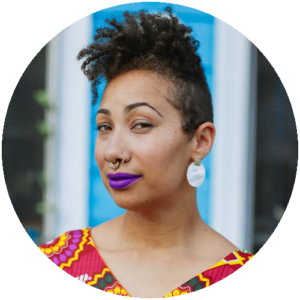
Sunni Patterson
New Orleans Native and Visionary, Sunni Patterson, is an internationally acclaimed Poet, Performer, Workshop Facilitator, Certified Spiritual Life Coach/Consultant, and an Initiated Priestess and Minister. She began her career as a full-time high school Teacher, and much of her life since has been devoted to serving as a Cultural Worker and Activist. Armed with an engaging story and voice, Sunni deliberately uses art, poetry, and praise (Ancestral remembrance) to encourage dialogue, connectivity, spiritual awareness, and healing. She has had the privilege of studying under great Scholars and Teachers, allowing her to become a diligent student in the Healing and Spiritual Arts. Her Artistry and Gift has allowed her to grace a plethora of stages and platforms. Whether speaking at TEDWomen, featuring on Grammy award winning Hip-Hop albums, officiating a wedding, or cooking up breakfast for families in the Community, you can rest assured, Sunni’s way and words bring us all to a place of recollection, remembrance, and hope.
Sunni is a 2020/2021 John O’Neal Cultural Arts Fellow. She currently serves as a Resident Artist for both the City of New Orleans’ Claiborne Corridor Cultural Initiative and Junebug Productions. She is also co-founder, along with Scientist and Atmospheric Chemist, Cherelle Blazer, of Environmental Arts and Public Health Organization, Breath is Lyfe.
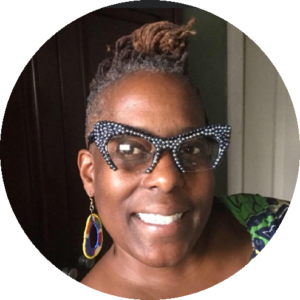
Nana Korantema Ayeboafo Pierce Williams
For more than 25 years Nana Korantema Pierce Williams has been a Priest (Spiritualist) in the Akom Tradition of Ghana, W. Africa and an advocate for community growth, development, and healing through her practice ConjureWorks, LLC. With degrees from Howard University (BS) and Saybrook University (MS, Mind-Body Medicine), Nana Korantema has long served as a bridge between traditional and modern practice. In her role as Priest, she has provided leadership through healing rites for individuals, collectives, and organizations seeking to create safe space for healing the diverse populations they employ; Rites of Passage ceremonies for audiences seeking to reclaim and nurture their cultural identity; several on-going workshop facilitations highlighting the need for self advocacy and self preservation in dominant and marginalized communities; and therapeutic bodywork which includes using somatic movements and releases, emotional intelligence awareness, and DNA lineage work to shift holding patterns often nestled in the body.
As faculty and Board member at the InnerWork Center, (IWC) Nana Korantema is also a certified Mindfulness Based Stress Reduction (MBSR) Facilitator, Teacher Trainer, and Consultant who curates creative, culturally sensitive spaces for facilitating tools that shift reactive behaviors into responsive choices.
Audiences young, seasoned, and in between benefit from safe environments that are welcoming, authentic, and transformative. These curated spaces lean into traditional practices rooted in ancestral facilitation and have impactful approaches to stress reduction, surviving trauma, and disruption of stagnant thoughts and actions. Nana Korantema is a conduit, wife, sister, mother, daughter, godmother, and life-long learner, who remains humbled by the healing powers of compassion, forgiveness, and love.
Mary F. Price
Since 2009, I have worked at the IUPUI Center for Service and Learning where I serve as the Director of Faculty Development. I was drawn to community engagement while a doctoral student in Anthropology in the 1990s. During graduate school I gained experience working alongside local residents, government agencies, and indigenous communities in cultural resource management and heritage projects in upstate New York and in Northwest Mexico. I was fortunate to have mentors that modelled cultural humility, recognizing the limits of scientific knowledge and the complex power relationships inherent to community-university engagement.
Beyond research, these experiences also helped to launch a love I have for immersive, experiential education and coaching and mentoring. Over the last 20 years, I’ve developed expertise in educational practices including: community-based and community engaged learning, study abroad, learning communities and faculty-mentored undergraduate research.
In my current role, I walk alongside faculty, students and community members to work towards the ideals of a justice and democratic society through educationally meaningful community engagement. One small way that I contribute to the effort of making campuses safe for engaged practitioner-scholars is through the work of Scholar Whispering, a coaching framework I developed to support individuals to (re)claim their sense of agency, efficacy and power in their boundary spanning work.
My current scholarly interests emphasize the influence of community-academic partnership relationships on learning and community outcomes, the socialization and success of publicly-engaged faculty and graduate students as part of campus equity, civic and student success agendas, and improving institutional climates for ethical and equitable community engagement. I’m one of the co-developers of the SOFAR Partnership Model and have also co-developed a related tool called Collaborative Relationship Mapping (ColRM). I’m an active member, and past co-chair of Assessing the Practices of Public Scholarship [APPS], a research group sponsored by Imagining America: Artists and Scholars in Public Life, which developed the Democratically Engaged Assessment Framework.

Haley Rains
Haley is an enrolled member of the Muscogee (Creek) Nation of Oklahoma. She was born and raised in Billings, Montana. She has worked as a professional photographer for over 14 years. She began her photography career as a concert photographer at the age of 15. Her portfolio includes bands such as Nine Inch Nails, Buckcherry, Avenged Sevenfold, Puddle of Mudd, Theory of a Deadman, Shinedown, Breaking Benjamin, Sugarland, and many more.
After attending film school in Bozeman, Montana, Haley went on to work in the film industry. By the age of 20, Haley had worked on three feature-length films. She started as a Production Assistant but by her second film had advanced to an IMDb-credited 2nd Assistant Director.
Haley holds a BA in Indigenous and American Indian Studies from Haskell Indian Nations University (a former Indian boarding school turned Tribal College) in Lawrence, Kansas, and an MA in Native American Studies from the University of California, Davis. Haley is currently working on her Ph.D. in Native American Studies with an emphasis on Visual Sovereignty at UC Davis.
Haley is engaged in the practice of Visual Sovereignty, which can be defined as exercising the inherent power to govern oneself and control one’s own narrative (and the narrative of one’s people) via self-representation in film, media, performance, and photography. In her publicly engaged practice, she teaches people of color (Native Americans, especially) how to use film and photography to assert their right to self-definition.
Haley is also an Associate Instructor at UC Davis. She teaches Filmmaking, Native American Literature, and Native American Studies.
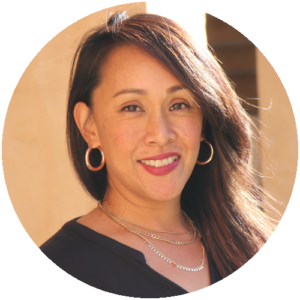
Dr. Robyn Magalit Rodriguez
Dr. Robyn Magalit Rodriguez is a scholar-activist who has been committed advancing social justice through her writing and teaching as well as in the communities where she lives and works for over half her life. She currently serves as professor and is the former chair of Asian American Studies at the University of California, Davis. She is also the founding director of the Bulosan Center for Filipinx Studies, the first of its kind in the University of California system focused on the Filipinx experience in the United States and diaspora. Dr. Rodriguez is a leading expert on the Asian American immigrant experience. She has been especially focused on the experiences of Filipinos both in the United States and the broader diaspora. An award-winning and acclaimed scholar, Dr. Rodriguez’s books and other publications examine anti-Asian (and Latino) immigrant policies in the United States, the exploitation of low-wage Filipino migrant workers globally and cross-racial solidarity activism at the local, national and transnational levels. Dr. Rodriguez has been invited to share her research at some of the top universities in the world including Cornell University (US), McGill University (Canada), the University of Frankfurt (Germany), and Oxford University (UK) among many others. Dr. Rodriguez has advanced Asian American Studies through her service as a national board member for the Association for Asian American Studies for two terms. Currently, she serves on the national advisory board of Imagining America. Alongside her scholarly work, Dr. Rodriguez is a committed activist and grassroots organizer. She has been especially passionate about immigrant and workers’ rights, as well as antiracism work including the struggle for ethnic studies. Among the community-based groups Dr. Rodriguez has founded or worked with are A.S.I.A.N! (Asian Sisters for Ideas in Action Now!), Critical Filipinx Scholars Collective, the Asian Pacific Islander Greater Sacramento Regional Network (for which she currently serves as interim Board chair) and the National Alliance for Filipino Concerns. She is the president of the Filipino American Educators of Association of California. Dr. Rodriguez is also a (bereaved) mother of two sons: Amado (deceased) and Ezio (an elementary school student).
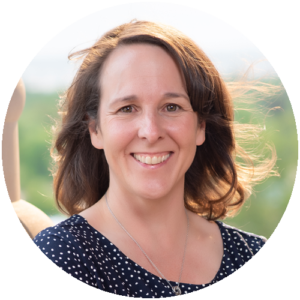
Cheryl Siemers
Cheryl Siemers serves as Director for Kenai Peninsula College, a branch campus of University of Alaska Anchorage. Siemers has a long-standing commitment to two-year colleges and the diverse communities in which they reside. She has championed and expanded community partnerships and engagement, multidisciplinary service learning, and place-based learning at her institution. Siemers has emphasized the incorporation of local and indigenous ways of knowing into curriculum development, assessment of program learning, and community-engaged research.
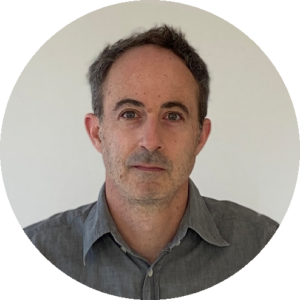
Brett Snyder
Brett Snyder researches and works at the intersection of architecture and media. Snyder is a principal of Cheng+Snyder an experimental architecture and design studio based in Oakland, California, an Associate Professor of Design at the University of California Davis, and a co-director of the Imagining America initiative, CoPED (Collective of Publicly Engaged Designers). Much of Snyder’s work focuses on the way that mobile media has changed the way that we navigate, understand, and experience the environment. Recent projects include Smart Sidewalks, a winning entry to the NYC Reinvent Payphones competition, Museum of the Phantom City an architectural iPhone app to view visionary but un-built architecture, and Public Sediment, an award winning collaborative project to unlock Alameda Creek. Together, these projects represent the forefront of climate engagement, with an array of experimental methods, including analog and digital methods fostering participation in creating resilience through engagement.
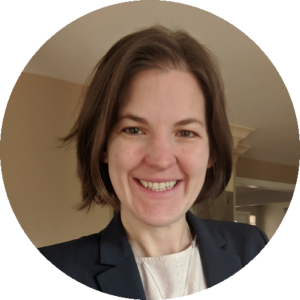
Sarah E. Stanlick
Sarah Stanlick, Ph.D., is a faculty member in the Department of Integrative and Global and Global Studies at Worcester Polytechnic Institute. She also directs the first year Great Problems Seminar program, which engages first year students in global-local project-based learning. She was the founding director of Lehigh University’s Center for Community Engagement and faculty member in Sociology and Anthropology. She previously taught at Centenary College of New Jersey and was a researcher at Harvard’s Kennedy School. She is involved in organizations such as the Community-Based Global Learning Collaborative and Imagining America Assessing the Practices of Public Scholarship (APPS) team.
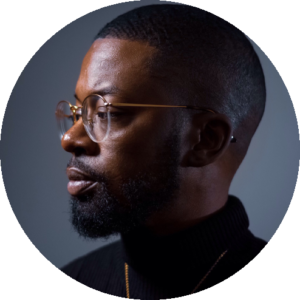
Benny Starr
Black music and southern culture intersect with deep roots in hip-hop, gospel, jazz, blues, and rock. They’re woven with rich history, resiliency, and storytelling that elicits a quest for a higher calling in those who connect with them. The same rings true in the offerings created by South Carolina Lowcountry artist Benny Starr. His most recent body of work, A Water Album, recorded live with his fellow bandmates The Four20s, at Charleston Music Hall, was released on Juneteenth 2019.
Following the release of A Water Album, which used water as a centralizing theme to explore issues of climate, race, culture, etc, Benny Starr has been featured in The Oxford American’s yearly southern music issue, and debuted his sensorial exhibit, “The Water Keeps Rising”, at The Avery Research Center for African American History and Culture in Charleston, South Carolina.
In January 2020, Native Son, a duo comprised of Benny Starr and producer/multi-instrumentalist Rodrick Cliche, was formed. Native Son’s musical release, “The Land’‘, has become a rallying cry that echoes the injustices of Black Legacy Farmers at the hands of the USDA. In collaboration with The Acres of Ancestry Initiative/Black Agrarian Fund and The Black Farmers Appeal: Cancel Pigford Debt Campaign, Native Son served as writer, producer, and director for “Restoration: A Concert Film”. Highlighting first-hand experiences of Black Farmers, organizers, and attorneys, “Restoration” has been screened at the Pan African Film Festival, Worldfest Houston, etc.
The US Water Alliance welcomed Benny Starr as their inaugural One Water Artist-in-Residence in October 2020. In addition to serving as the US Water Alliance’s One Water Artist-in-Residence, Benny collaborated with the Water Equity & Climate Resilience Caucus to develop a curriculum on partnerships for change through radical art and cultural engagement. Most recently, Benny Starr was named one of Grist’s 50 Fixers of 2021.
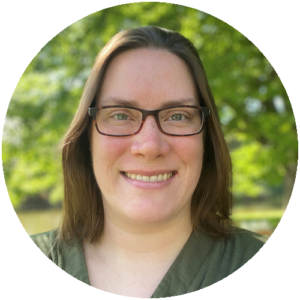
Trina Van Schyndel
Trina Van Schyndel is the Membership Director for Imagining America, and she also coordinates the Joy of Giving Something (JGS) Fellows program. She comes to IA with extensive experience in higher education settings, including community-engaged learning and community-campus partnerships. She also has been responsible for supporting networks of publicly-engaged practitioner-scholars. Previously, Van Schyndel worked in the community engagement offices at the University of Wisconsin – Milwaukee and the Medical College of Wisconsin. She is also a prior director of Campus Compact for Wisconsin. Van Schyndel is currently a doctoral candidate in the higher, adult, and lifelong education program at Michigan State University, where she is also completing her graduate certificate in community engagement. Her dissertation focuses on the identity development of community-engaged practitioner-scholars through their participation in community engagement professional associations while in graduate school. Recent publications and presentations focus on supporting community-engaged graduate students and community-engaged boundary-spanners in higher education.
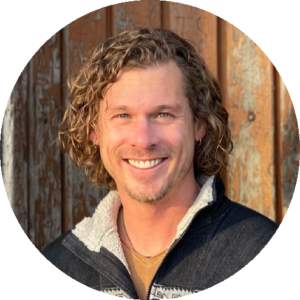
Brandon Whitney
I’ve spent my career working at the intersections of technology, civic engagement, sustainability, and education. Most recently I spent a decade building ioby.org, the world’s first civic crowdfunding platform and coaching program, supporting the implementation of over $12M of community-led and -funded projects across the US. ioby has been nationally recognized and awarded for its mission, model, and results. With my co-founder, I led the organization through a series of growth milestones from piloting to replication to scaling. Our team co-created a place they love to work and earned the trust of those we serve. As COO, I owned all internal functions: strategy, people operations, product, customer success, finance, and admin. An environmental anthropologist by training, my background before ioby spanned academia, nonprofits, and community organizations. The majority of my experience involved key moments in organizational development and capacity building, particularly the founding of several new centers, leadership transitions, and a strategic shift in purpose. I’ve had dozens of public speaking engagements, published several book chapters/journal articles, and have been humbled by awards from the Obama Foundation, the National Conference on Citizenship, the Rockefeller Foundation, Next American City, and America on Tech.
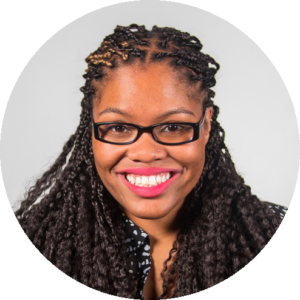
Adreenah “Dreezy” Wynn
Powerful, bold, brilliant, I am Adreenah “Dreezy” Wynn. Art, for me, has always been my way to release pain and anxiety. Art gives me a platform to help improve the world, both the people and our environment. A large part of my desire to help others through art is because of my own healing from art.
I am a black, queer, female, graphic designer, thriving with Sickle Cell Disease and mental health issues. The summation of my life experiences compels me to speak out and make space so that those who do not have a voice can speak. And at times, allows me to represent communities that I am also a part of. My art-making is a way for me to process the complex systems of society.
I am from the rural community of Apalachicola, Florida. I graduated from the University of Florida in 2017 with a dual degree in Graphic Design and Art+Technology as well as a minor in Sociology. I’m currently working on my Master of Fine Arts in Design and Visual Communication at the University of Florida and finishing up a certificate in Arts in Medicine.
I use design as a catalyst to initiate real conversation, amongst real people, about real issues. Much of my work has a social justice theme. I’ve volunteered and facilitated art and story-telling workshops in UF Health Shands Hospital, juvenile detention centers, and within the community including schools. I’ve spent these past few years community organizing and I absolutely love it!
I am a digital storyteller, art activist, and social designer. Whether it be through health and wellness, or my work within the climate change realm, I will use my tools as an artist to create a positive impact in this world. You can check out my work at http://www.adreenah.com
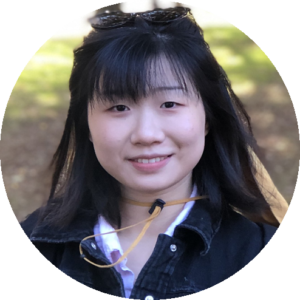
Nan Yang
Nan Yang is a second-year Ph.D. student in Architecture at Pennsylvania State University. She joined the CoPED team as a student research associate in Spring 2021. She was trained as a landscape architect and received her master’s in landscape architecture at the Graduate school of Design, Harvard University. Her passion for understanding and harnessing the social dimensions of landscapes drove her to academia. Her Ph.D. dissertation focuses on socio-spatial dimensions of urban/community development stimulated by the emerging e-commerce garment industry sector in rural China.
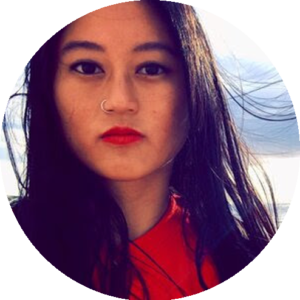
Bz (Brenda) Zhang
Bz (Brenda) Zhang is a designer, visual artist, organizer, and educator based on Tongva land (Los Angeles, USA). They are a founding member of Dark Matter University, an organizer with the Design As Protest Collective and Dark Matter University, and a fellow at the University of Southern California School of Architecture. They received a Master of Architecture from the University of California, Berkeley, and a Bachelor of Arts with Honors in Visual Arts from Brown University.

